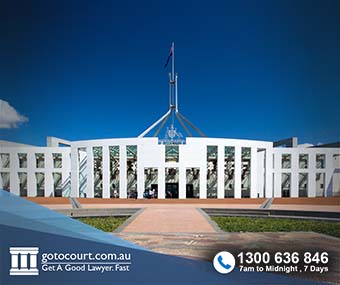Call our lawyers
now
or,
have our lawyers
call you
The Confessional Seal and Child Abuse
Updated on Oct 07, 2018 • 4 min read • 187 views • Copy Link
The Confessional Seal and Child Abuse
The Tasmanian government has this month released draft legislation that would impose mandatory reporting obligations on priests. If the new law is passed, Tasmanian priests will face criminal charges and possible jail time if they fail to report child sex offences that have been disclosed to them, including under the confessional seal. Similar legislation has already been passed in South Australia and the ACT, but the Catholic church strongly opposes lifting the confessional seal and claims that doing so would not help to protect children.
South Australia and the ACT
In South Australia, ministers of religion are now listed among the persons to whom mandatory reporting obligations apply (Section 30 of the Children and Young People (Safety) Act 2017). Section 31 of the act requires such persons to report any reasonable suspicion that a child or young person is at risk or may be at risk as soon as reasonably practicable and imposes a maximum penalty of a fine of $10,000 for failing to do so.
In the ACT, starting in 2019, priests will be required to break the confessional seal if a penitent admits to committing child sexual abuse.
Royal Commission recommendations
Lifting the confessional seal was one of the recommendations made by the Royal Commission into Institutional Responses to Child Sexual Abuse, which reported earlier this year. The commission recommended that each state and territory government should introduce legislation making it a criminal offence to fail to report knowledge or suspicions gained based on information disclosed during religious confession. It recommended that any existing excuses, privileges and protections in relation to knowledge gained in the confessional be excluded to facilitate such reporting.
The commission also recommended that when a person confesses to perpetrating child sexual abuse, absolution should be withheld until they report themselves to civil authorities.
The confessional seal
The confidential nature of religious confession dates back to 1151, when the Decretum, a collection of Canon law, was published as a legal textbook. The Decretum stated, ‘Let the priest who dares to make known the sins of his penitent be deposed.’
The confessional seal applies when a priest learns something from a penitent during the Sacrament of Penance (Confession) and is fundamental to the Catholic faith. Sinners ask for forgiveness for their sins in order to reconcile with God and the Church. Under Canon law, it is absolutely forbidden for a confessor to betray a penitent for any reason.
Under the rules of evidence in most states and territories, confessional privilege forbids judicial enquiry into conversations that occurred under the confessional seal. In cases where a criminal offence is confessed, a priest may encourage the penitent to hand themselves in to authorities. In cases of exceptionally serious offending, where the penitent does not appear genuinely remorseful and there are no mitigating factors, a priest may refuse to hear or to continue to hear the confession.
Clergy response to the changes
Priests say that removing the confessional seal is impractical as well as unacceptable. Traditionally, confession occurs from behind a screen so that the priest, at least in theory, does not know who the confessor is. Confessional does not require the confessor to specify the sorts of details required by police in order to prosecute a person for an offence. For example, it does not require them to provide the details of the victim or the time and place the offence occurred. Priests have argued that the information they receive is therefore too vague to be used to incriminate anyone in an offence.
Priests have also argued that the laws misunderstand the nature of religious sacrament, which relates to the penitent’s personal relationship with God and which is governed by divine law.
They say that the safety of children can be safeguarded whilst maintaining the confessional seal and argue that disclosure of confessional material could actually make children less safe by reducing the likelihood of such conduct being confessed. This would also mean that priests would lose the opportunity to encourage the offender to admit the offence to authorities or to assist the victim.
It has also been suggested that the changes constitute a curtailment of freedom of religion. However, supporters of the changes argue that such rights must be balanced with other rights including the right of children to be protected from harm.
If you need legal advice or assistance please contact Go To Court Lawyers.

Affordable Lawyers
Our Go To Court Lawyers will assist you in all areas of law. We specialise in providing legal advice urgently – at the time when you need it most. If you need a lawyer right now, today, we can help you – no matter where you are in Australia.How It Works











1. You speak directly to a lawyer
When you call the Go To Court Legal Hotline, you will be connected directly to a lawyer, every time.


2. Get your legal situation assessed
We determine the best way forward in your legal matter, free of charge. If you want to go ahead and book a face-to-face appointment, we will connect you with a specialist in your local area.


3. We arrange everything as needed
If you want to go ahead and book a fact-to-face appointment, we will connect you with a specialist in your local area no matter where you are and even at very short notice.












